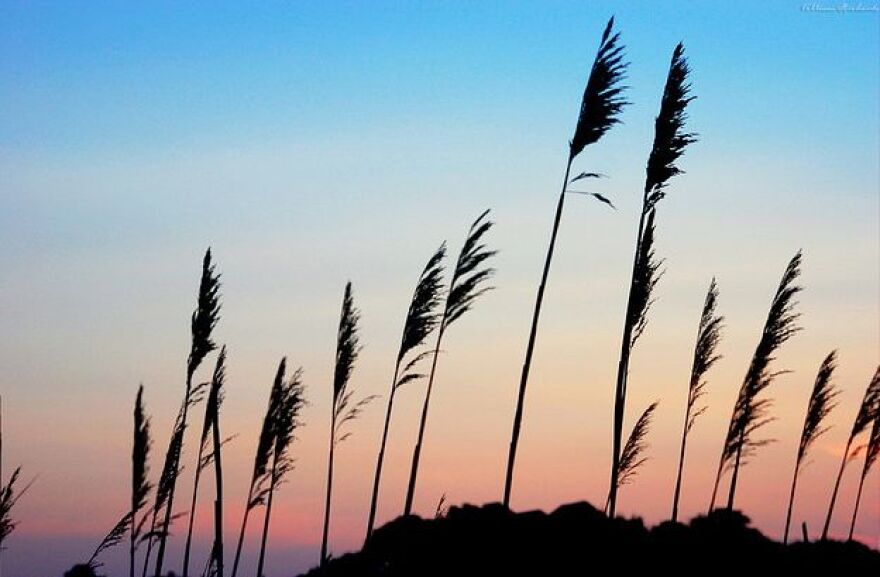One never knows what one is going to find on the outer beach. One day last month I drove out to Newcomb Hollow. When I arrived at the parking lot, there were about a half dozen cars there from all over the Northeast: Massachusetts, New Hampshire, Connecticut, New York, New Jersey – as well as one from Illinois - an unusual diversity of visitors, I thought, for this time of year.
There were about twenty people on the beach – men, women, and children - standing around a large mound-shaped structure made of canvas and wooden hoops. In front of the structure two men with rakes and pitchforks were tending a large bonfire. I walked down to the beach and approached one of the men sporting a dark mustache and goatee.
“Well,” I asked, “what have we got here?”
“Oh,” he said, somewhat startled. “We – we’re reclaiming a traditional habitat.”
“A traditional habitat? What kind of traditional habitat?”
“Well,” he replied, somewhat evasively, “we’ve been doing this all over the world, but this is our first time here. This is a really beautiful place.”
“So,” I asked, "are you members of the Wampanoag tribe?”
“No - well, some of us, maybe, but not all.”
“I see. So - this structure-does it have a name? A traditional name”?
“Oh - I don’t know.”
“Looks to me like a wetu – you know, a traditional Wampanoag shelter.”
“Yeah - yeah,” he said, “that could be - I don’t really know.”
“Hmm. Do you mind,” I asked, “if I take a closer look at the structure?"
“Um,” he said, “I guess not.”
It was a canvas dome about twelve feet long, supported by saplings and anchored with ropes tied to pieces of firewood in the sand. A blanket had been fastened across the opening facing east, and a sprig of some green plant that was quickly withering was set in a mound of sand next to the opening.
I went over to the other man tending the fire, a tall, reddish-haired man in his forties named Dave. He stood leaning on a pitchfork, musing on the loveliness of the evening, which had sunk down to a pale rosiness in the west. He seemed friendly enough and more willing to talk, though, like the first man, he was not very forthcoming about the specifics of what they were doing and seemed strangely uninformed about where he was or the nature of the beach. When I asked him how long he’d been doing these “traditional habitat reclamations” he said, “Oh, about nine years.”
“That’s quite a time commitment.”
He snorted but made no comment.
I asked him about the withered sprig set in the sand next to the hut opening.
“Oh, that comes from inside the hut - it’s part of the ceremony.”
When I asked him what ceremony was that, he changed the subject and said, “Oh, we go all over.”
For someone who was in the business of “reclaiming traditional habitats” he had never heard of the Wampanoags, though he seemed quite interested when I mentioned them.
He indicated that “the ceremony” – whatever it was – would be starting soon, and it was clear from his tone that outside observers would not be welcome. But before I left, I asked him if his group or organization had a name. He said it was “Ryan Environmental,” but he added, “We don’t have a website. It’s not like we’re advertising, or trying to get people to join.”
When I got home, I Googled “Traditional Habitat Reclaimers.” Zilch. Then I tried “Ryan Environmental.” What came up was a “Full Service Environmental and Construction Service” based in Bridgeport, West Virginia, my home state.
As I said, you never know what you’re going to find on the Outer Beach.







